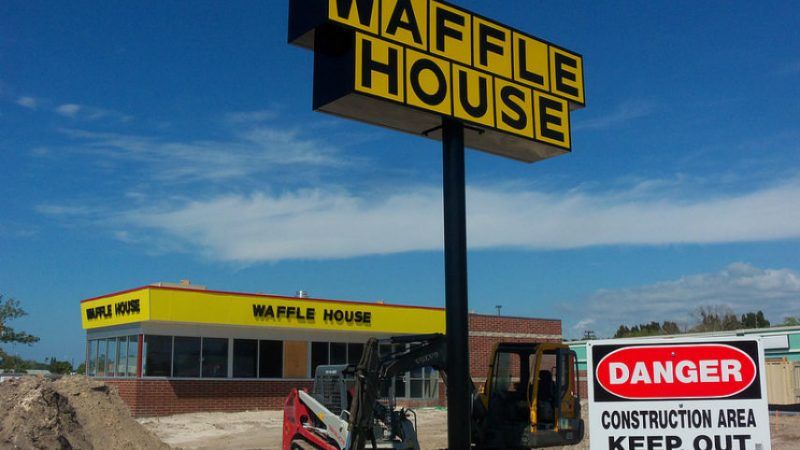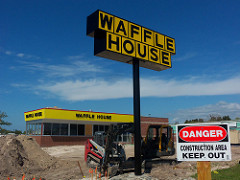Nashville Mayor Calls for Tougher Gun Control After Waffle House Shooting
Assault weapon ban proposals are more and more popular, but the facts about American gun violence show they'd have little positive effect.

Nashville's mayor called for more gun control in the wake of a shooting that killed four people at a Waffle House last weekend. The alleged shooter is now in custody.

"Clearly the victims of this shooting deserve our prayers and our thoughts," says Mayor David Briley, a Democrat, "but they also deserve leaders who will step up and take action and do something to get these weapons off our streets. Innocent Nashvilleans were terrorized by a man with an AR-15. Let's be honest. Some people see these weapons as having a purpose of terrorizing other people. It's happening too much. Enough is enough."
The same neighborhood also saw one person killed and several wounded at a church shooting last September. That shooter was armed with two pistols, and he was captured by an armed citizen.
Briley concludes: "We need comprehensive gun reform to address mass shootings, domestic shootings, accidental shootings, and homicides. If we can all just come together for this and for the greater good, we can take these weapons of war off the streets of our country."
A Democratic congressperson who represents the area, Jim Cooper, agrees, tweeting that "We can and must do everything possible to prevent these tragedies and keep Americans safe….That starts with restricting widespread civilian access to military-grade assault weapons."
Briley was never elected to his position; he slid into it in March after the previous mayor resigned in scandal. He will face the voters for the first time as mayor in August.
As the earlier church shooting shows, and as the fact that rifles of any sort are generally used in only around 2 percent of American gun homicides shows, Briley's focus on the AR-15 and Collins' on "military-grade assault weapons" are more about pageantry than they are about actually thwarting a major threat to his citizens. As Jacob Sullum has written:
the features that define so-called assault weapons—things like folding stocks and barrel shrouds—have little or nothing to do with their effectiveness in the hands of mass shooters. Contrary to popular belief, [such guns] do not fire faster, fire more rounds, or fire larger-caliber bullets than the ones that would remain legal. Even if she could make all "assault weapons" magically disappear, would-be mass shooters would have plenty of equally lethal choices left.
The particular facts of the Waffle House shooting involve someone, Travis Reinking, who already had "strong gun laws" aimed at him, including actual confiscation of weapons and revocation of a state license to possess weapons. This is further sign that even strong laws actually enforced to the best of the government's likely capacity are not sufficient to prevent these tragedies.
At least seven states and some localities already have some version of an assault weapon ban, and in the wake of the Florida school shooting in February new proposals have been floated in at least Indiana, Colorado, Oregon, Florida, and Vermont. The United States as a whole had such a ban from 1994 to 2004 with no noticeable effect on gun violence.
Some federal appeals courts have decided that such bans are constitutionally acceptable, though the Supreme Court has yet to consider the issue.


Show Comments (76)